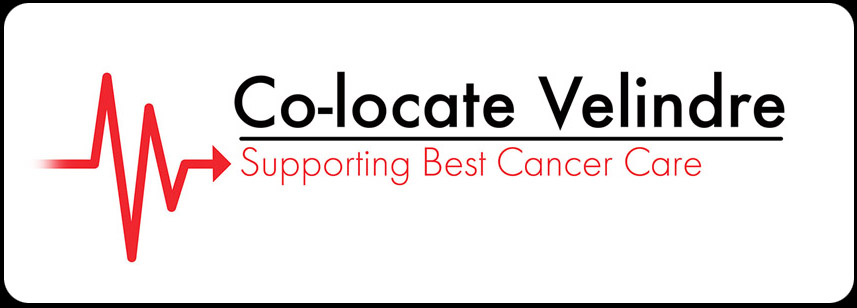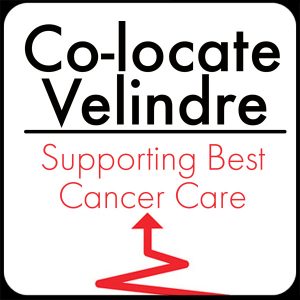Co-locate Velindre is a healthcare professional action-group fighting for the best cancer care in South East Wales. Its members are appalled that a new cancer centre for the region is actually planned to be ‘stand-alone’.
Instead, along with the majority of cancer specialists in the NHS today, we expect any new cancer centre in South East Wales to be ‘co-located’ with a large hospital (UHW favoured). It must have the same facilities available to patients as other UK Cancer Centres. This is a matter of health equality in Wales and through the whole UK. That means any cancer centre must be on the same site as an intensive care unit and operating theatres. Also it must have medical, surgical and speciality support services available 24/7 for safe delivery of routine and emergency care.A stand- alone Centre will be unable to offer patients all the many therapies developing today, while opportunities to participate in research trials will be severely limited.
Co-locate Velindre‘s vision fits perfectly with the authoritative judgement made by a group of foremost professors reviewing the Wales Cancer Research Centre. This powerful document is now available on this site.https://colocate-velindre.co.uk/the-disturbing-letter/
We would like to make clear our gratitude to all Velindre’s staff, and we want everyone to be absolutely clear that we support these key workers and the service they provide.
We make many criticisms of ‘Velindre’ in our blogs. We want to emphasise that these criticisms are NOT directed at frontline staff.
Our scientifically validated criticism is directed solely at those who propose that the new Cancer Centre should be located on any site not attached to a larger General Hospital. We call these people ‘New Velindre leadership’.
we are aware of accusations that we are in some way ‘anti-cancer treatment’, ‘nimby’ or ‘unsupportive’, and we have written this especially to refute the views.
We emphasise again our huge gratitude to the staff for the care they provide at the existing Velindre.
The Co-locate Team:-
Dr Penny Owen
Qualified from the Welsh National School of Medicine in 1978 and then spent the next 4 years training to be a GP. After working in New Zealand, Llanbradach and Abertridwr, she worked for 25 years as a GP in Cardiff and for the last 10 years was the senior partner in the GP practice.
During this time she was appointed as a University Lecturer in General Practice and taught medical students and served in training the next generation of young doctors in general practice. She was made a Fellow of the Royal College of General Practitioners.
Gained an MD research degree and has published articles in the British Medical Journal and the British Journal of General Practice including on the early diagnosis of meningococcal septicaemia, teamwork in general practice, and how Bayes’ Theorem and pre-test probability explains why diagnosis can be more difficult in general practice than in hospitals.
Dr Rosemary Fox
Qualified as a GP in 1988, then worked in community health. Became a Consultant in Public Health in 2007 and worked in cancer screening at Velindre NHS Trust including as Deputy Director. Became the Director of Screening at Public Health Wales which delivers the population screening programmes for Wales, including the three cancer screening programmes for Breast, Cervical and Bowel.
Served on both Wales and UK National Screening Committees, and also attended for Welsh Government on UK Department of Health Advisory Committee for Breast, Bowel and Cervical Screening.
Awarded an MBE for Services to Healthcare on her retirement in 2017.
Dr Lionel Jacobson
Qualified from Southampton in 1986, worked in Winchester, Bournemouth and Australia before moving to Cardiff in 1989 to start GP Training. He became a GP Partner in a Cardiff Practice in 1992 and combined GP work with research and teaching roles at the University Department of General Practice. He retired from General Practice in 2018, but continues as a Community Clinical Lecturer at Cardiff University involved in teaching Medical Students.
He has published research papers in multiple General Practice-based Journals, and specialised in Research work on the health of teenagers and became an examiner for 3 Doctoral Theses on the basis of his original research.

